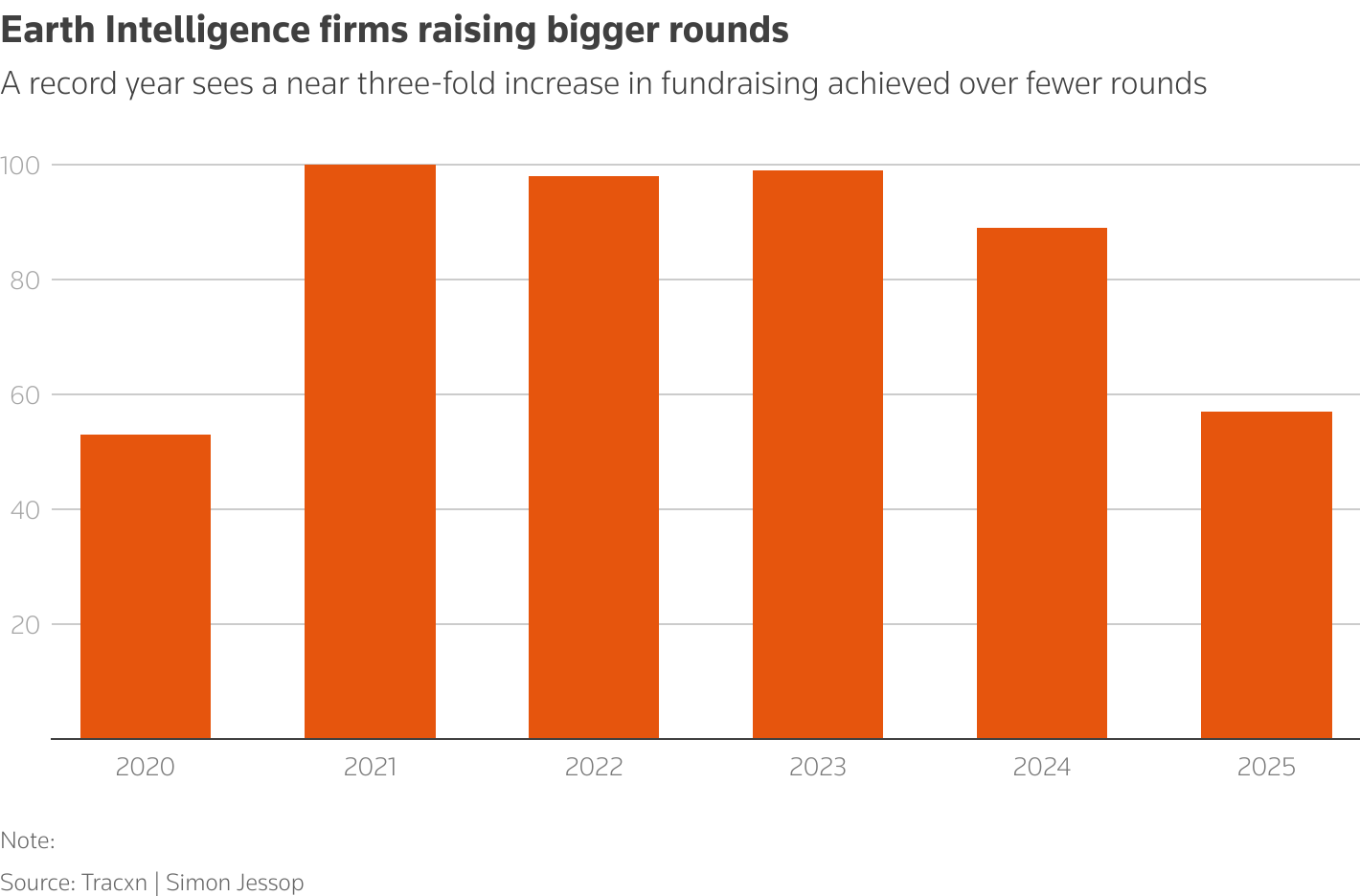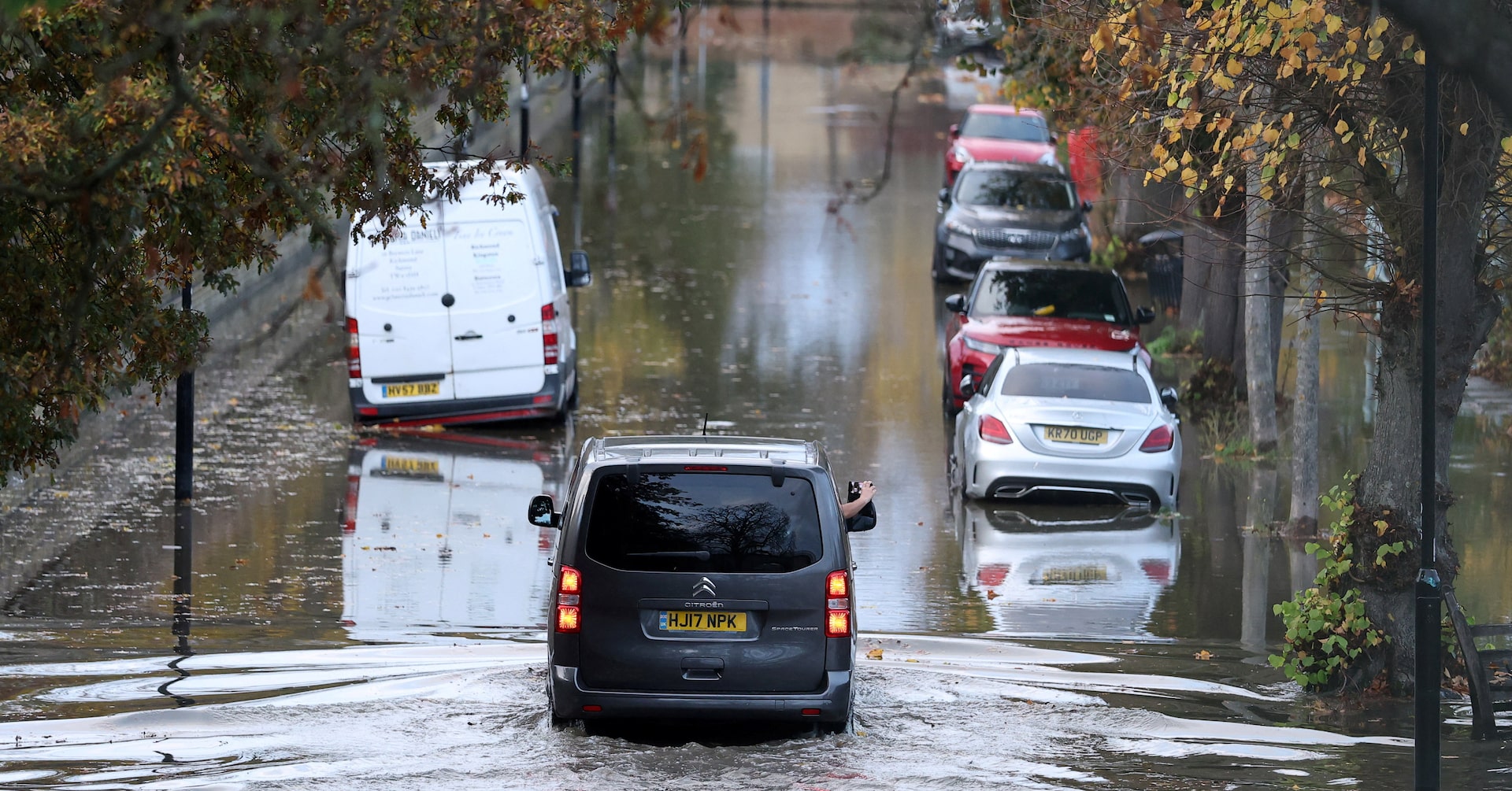BELEM, Brazil, Nov 22 (Reuters) – A British real estate manager overseeing 26 billion euros ($29.93 billion) in assets and concerned about flood, fire and other climate-related risks to its properties sought help from Climate X, a data analytics firm based in London.
Climate X started crunching numbers and using its AI risk modeling tool, informed partly by U.S. scientific data, to help Savills Investment Management estimate possible damages to 300 of its assets in Europe and Asia if weather disruptions hit.
Sign up here.
Savills said the information helps with investment decisions and it may now use Climate X analytics to assess hundreds more properties.
Revenues for the earth intelligence sector should rise at least 10% to $4.2 billion by 2030, market analysis firm Gartner said, teasing the industry in July as a “new revenue growth opportunity.”
The industry’s impact could be even more significant. The World Economic Forum has estimated earth intelligence will help reduce risk, grow opportunities, and generate jobs for a total $3.8 trillion in economic value by 2030, up from $266 billion today.
The private data boom is also raising questions around accuracy and access for those unable to pay. Private companies can do only so much without baseline data from U.S. government agencies such as NOAA, according to officials from more than a dozen firms who spoke with Reuters.
“Without it we wouldn’t know if our models are good or bad, frankly,” Climate X co-founder and Chief Operating Officer Kamil Kluza said.
“We are huge consumers of governmental data to validate what’s happened in the past,” Kluza told Reuters. “The governments hold the past flood history … past subsidence incidents, landslides, and so on.”
HUNTING OPPORTUNITY AND COSTS
Gartner predicts private companies will soon account for more than half of global spending on data services, up from just 15% currently.
In 2025, earth intelligence companies raised some $3.2 billion across 57 funding rounds up to November 21, up sharply from $1.1 billion in 89 rounds last year and $845 million in 99 rounds in 2023, according to data from industry tracker Tracxn shared exclusively with Reuters.
“Business is good, business is growing,” the company’s UK head Dan Wicks told Reuters.
GHGSat is part of a trend in private satellite monitoring, with 666 commercial satellites focused on earth observation or science circling the planet in 2023, compared with just seven in 2005, according to the Union of Concerned Scientists.
With governments and energy companies looking for GHGSat’s help in spotting leaky infrastructure they can plug to stem climate-warming methane emissions and possibly boost profits, Wicks said, “we are seeing significant growth year on year as a private company.”
JUGGLING EQUITY, ACCESS AND PROFITS
Public companies are also rallying. Shares for one of the largest, Planet Labs, are up 190% since January.
In the seven decades since Dutch-based Fugro began studying soil, it has grown into a geospatial data company with annual revenues above $2.2 billion as it took on marine surveys and pushed its mapping out to sea.
“We map, then we start modeling it, and then we start monitoring it — whether it’s the built environment or the natural environment,” Fugro CEO Mark Heine told Reuters.
Two-thirds of its work is now offshore: building underwater maps that can help governments manage coastal environments or help ships navigate safely.
These companies are not immune to upheaval. After posting 4% growth in 2024, Fugro took a hit partly as offshore wind clients suffered a downturn after Trump slammed the brakes on U.S. support for renewable energy. Fugro’s third-quarter revenues were down 14.5% from last year.
Fugro, keen to offer more, is co-chairing the U.N.’s Ocean Decade Corporate Data Group aimed at unlocking marine data from industries like energy, telecoms and fisheries for public benefit.
“We have invited 12 very large enterprises, like Shell, BP, Total, Equinor, to discuss how to release ocean data collected for commercial purposes,” Heine said.
Fugro has also teamed up with the private GIS software company Esri to build coastal maps around climate-vulnerable island nations, starting in the Caribbean.
“We believe rich countries have a responsibility to help small island nations protect themselves from sea-level rise,” Heine said.

($1 = 0.8688 euros)
Reporting by Katy Daigle and Simon Jessop; Editing by David Gregorio
Our Standards: The Thomson Reuters Trust Principles.


